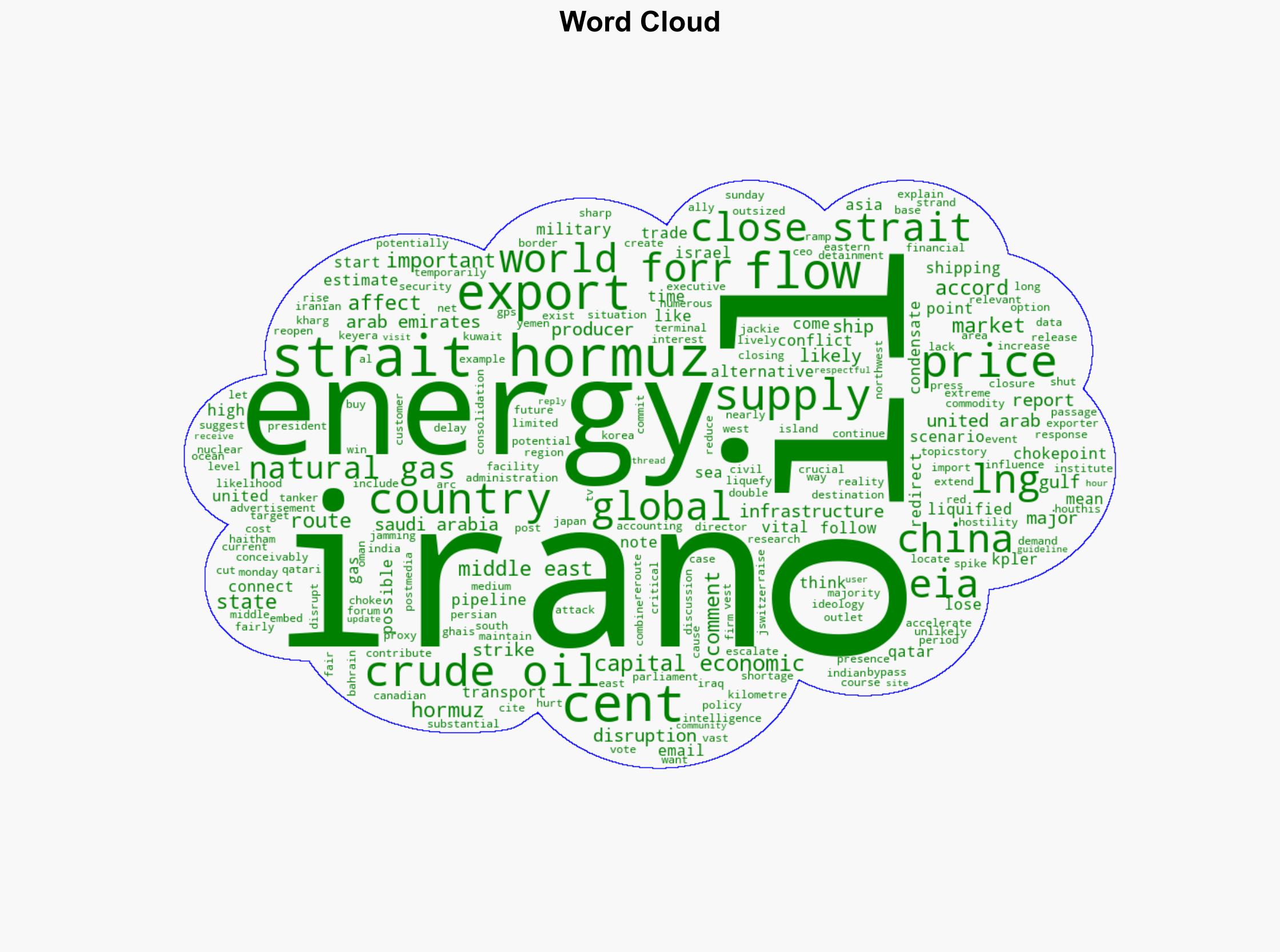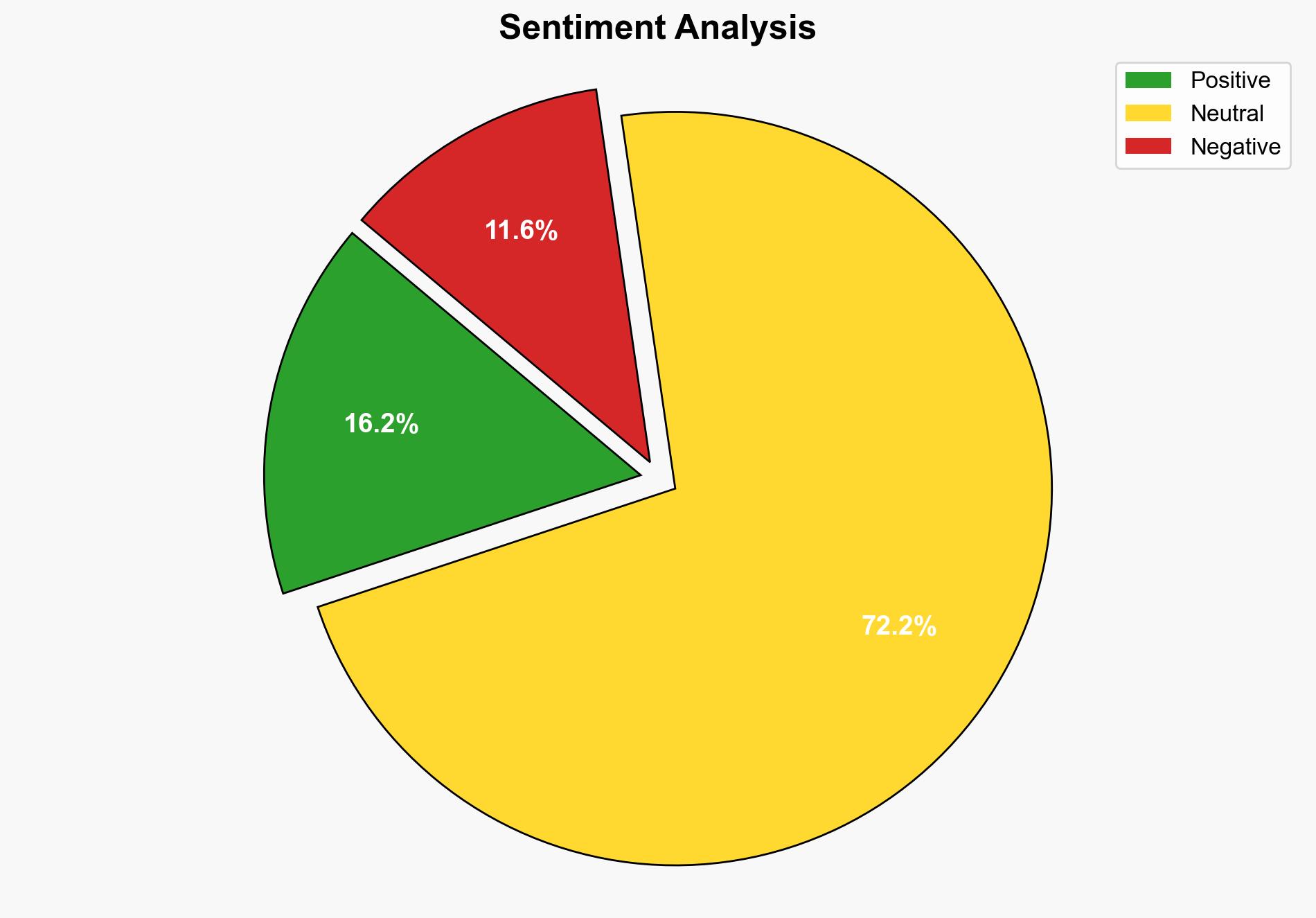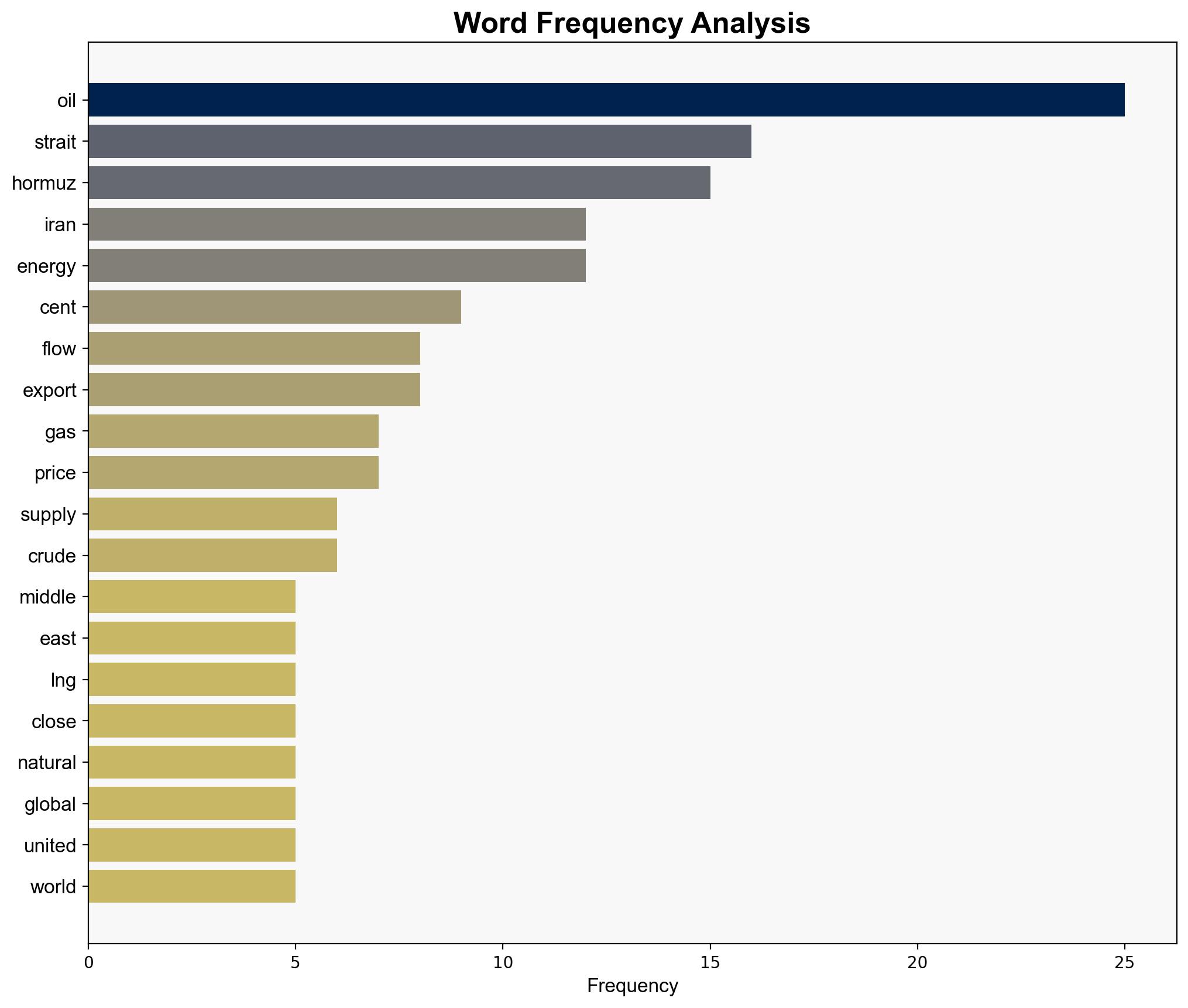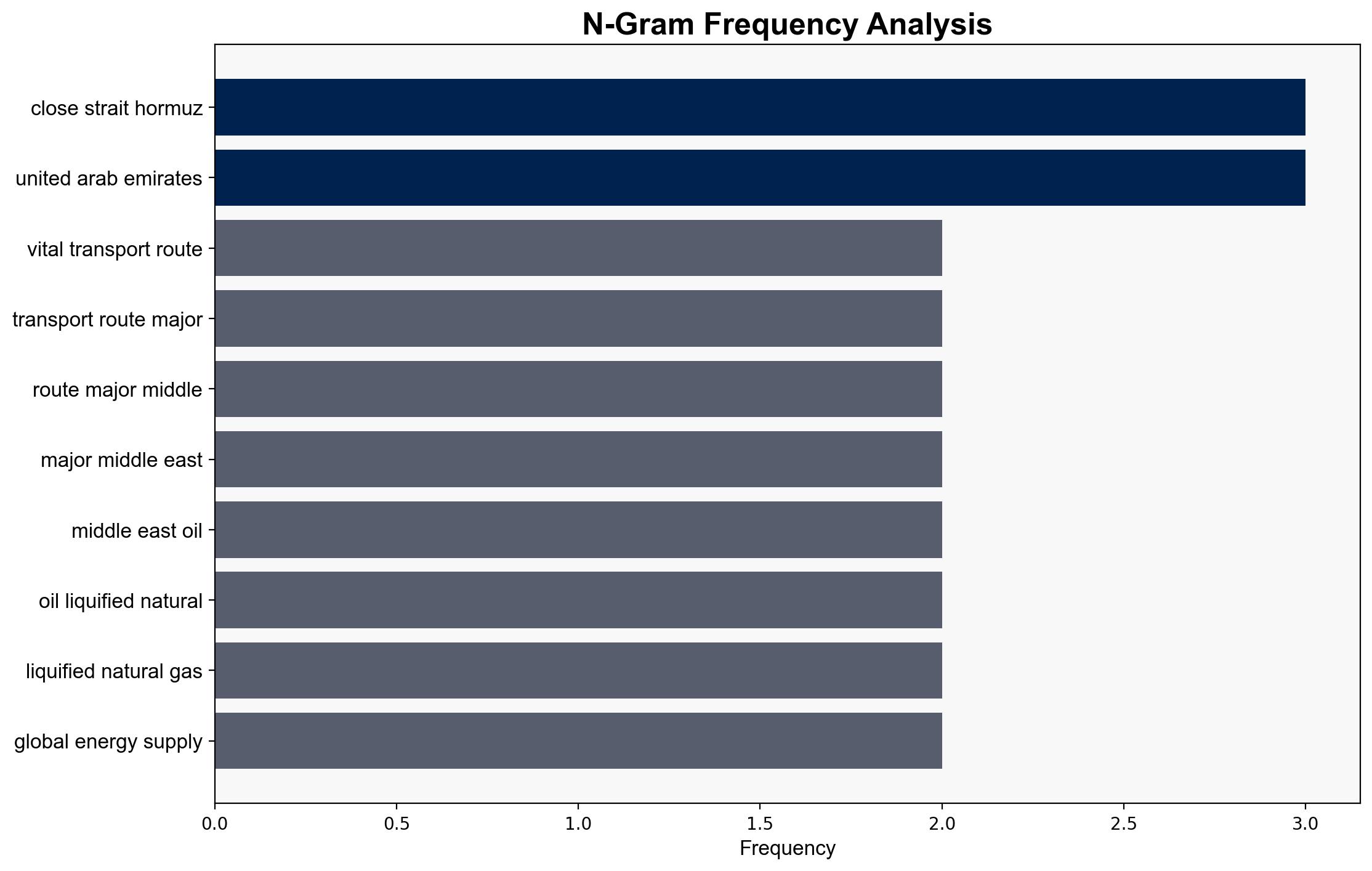What is the Strait of Hormuz and why is it so important for oil markets – Financial Post
Published on: 2025-06-23
Intelligence Report: What is the Strait of Hormuz and why is it so important for oil markets – Financial Post
1. BLUF (Bottom Line Up Front)
The Strait of Hormuz is a critical chokepoint for global oil and liquefied natural gas (LNG) markets. Any disruption in this region could significantly impact global energy prices and supply chains. The strategic importance of the strait is underscored by its role in transporting a substantial portion of the world’s oil, primarily to Asian markets. Current geopolitical tensions, particularly involving Iran, pose a potential risk to the stability of this vital maritime route.
2. Detailed Analysis
The following structured analytic techniques have been applied to ensure methodological consistency:
Causal Layered Analysis (CLA)
Surface events include Iran’s potential threat to close the strait in response to geopolitical tensions. Systemic structures involve the reliance of Middle Eastern oil producers on this route. Worldviews reflect the strategic importance of energy security, while myths pertain to the perception of invulnerability of major oil routes.
Cross-Impact Simulation
Disruption in the Strait of Hormuz could lead to increased tensions among Gulf states and impact global oil prices. Neighboring countries may seek alternative routes, affecting regional trade dynamics.
Scenario Generation
Scenarios include a temporary closure of the strait, leading to a spike in oil prices, or a prolonged disruption causing a global energy crisis. Alternative scenarios consider diplomatic resolutions maintaining open trade routes.
Bayesian Scenario Modeling
Probabilistic analysis suggests a low likelihood of prolonged closure due to international pressure and economic interdependencies. However, short-term disruptions remain plausible.
Narrative Pattern Analysis
Ideological narratives from Iran emphasize resistance to external pressures, while global narratives focus on energy security and economic stability.
3. Implications and Strategic Risks
The closure of the Strait of Hormuz could lead to significant economic disruptions, affecting global oil prices and supply chains. Political tensions may escalate, increasing the risk of military confrontations. Cyber threats targeting oil infrastructure could exacerbate vulnerabilities.
4. Recommendations and Outlook
- Enhance diplomatic efforts to ensure the strait remains open and secure.
- Develop contingency plans for alternative energy supply routes.
- Monitor geopolitical developments closely to anticipate potential disruptions.
- Scenario-based projections: Best case – diplomatic resolution; Worst case – prolonged closure; Most likely – temporary disruptions with quick resolutions.
5. Key Individuals and Entities
Haitham Al Ghais, Jackie Forr
6. Thematic Tags
national security threats, energy security, geopolitical tensions, Middle East, oil markets





